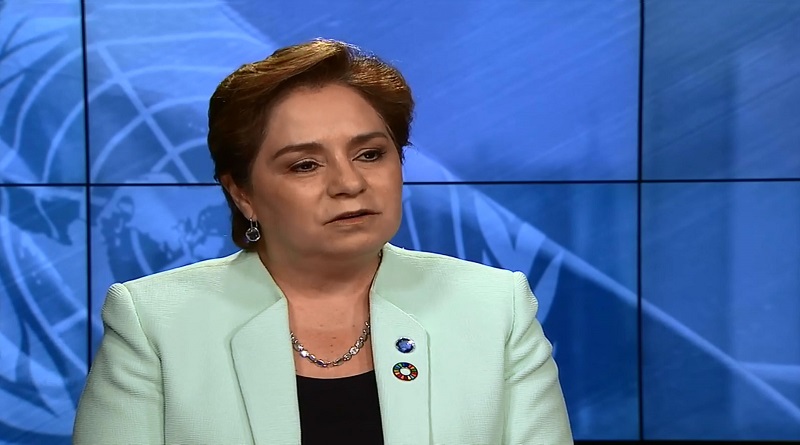UN Climate chief urges countries to deliver on $100bn pledge
United Nations Climate Change Executive Secretary Patricia Espinosa has urged developed countries to make good on their promise to mobilize USD100 billion annually in climate finance to support the needs of developing nations. Long-term finance is a key pillar of the Paris Agreement and crucial to global efforts to tackle the climate crisis.
Speaking at the UN Climate Talks taking place virtually from 31 May to 17 June, the UN Climate Chief expressed her frustration that the pledge of financial support, made in 2010, has not yet been met:
“We are still talking about this promise, despite greenhouse gas emissions continuing to be at their highest concentration ever; while extreme weather continues to decimate more parts of the world and with greater intensity; and while vulnerable people continue to suffer, continue to lose their livelihoods and their lives.”
Ms. Espinosa today addressed government delegates at an expert meeting on long-term climate finance. Her call to action comes shortly before leaders of the world’s largest and most advanced economies prepare to gather for the G7 summit taking place from 9-11 June in Cornwall, United Kingdom, where the issue of building back better from the COVID-19 pandemic with greener, more sustainable economies will take centre stage.
For many nations, securing the financing necessary to spur their own transition to a more sustainable future can’t happen without this promised support. This includes action to cut greenhouse gas emissions and action to build resilience to the inevitable impacts of climate change, such as frequent and severe droughts, floods and storms.
Meanwhile, the trillions of dollars being spent by governments for COVID-19 recovery packages has demonstrated that the $100 billion annually could be mobilized relatively easily with the adequate political will.
The COVID pandemic has also brought home the true nature of a global emergency and sounded the alarm bells on the likelihood of climate change impacts being far worse. It has also shown that global emergencies do not stop at national borders, thereby underscoring the vital importance of international cooperation.
With just over 150 developing nations in the world, representing just over 6.5 billion people, Ms. Espinosa said: “To think we can address climate change without them; to think we can make the transition to a cleaner and greener future without them; to ultimately ensure the safety of humanity on this planet without them – is impossible.”
Finance pivotal to success of COP26
With the crucial UN Climate Change Conference COP26 in Glasgow only five months away, expectations for finance for more ambitious climate action have never been higher and more pressing. Pressure is mounting for the 2015 Paris Agreement to be finally fully implemented, with strong financial commitments central to achieving this goal.
Ms. Espinosa said: “I want to recognize that several nations have indeed stepped up and made stronger commitments in the last six months. This is extremely encouraging. We’ve seen more ambitious plans, new zero-emissions targets and encouraging progress. But we need all nations on board.” She added that delivering on the financial pledge made in 2010 would also signal that future commitments under the Paris Agreement can be trusted.




